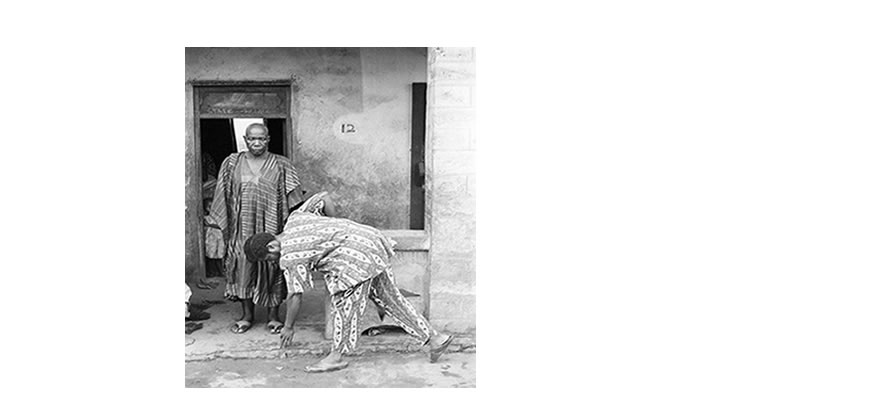Elaborate Greetings and Our Heritage by Morayo Oshodi
Eku ise baba!
Greeting is a two-way communication process that plays an important role in every society. I am certain that the most interesting forms of greetings are found in Africa, as our people love to accompany their greetings with prostrations, gesticulations and more (remember the elaborate greeting routine in the slapstick comedy Mr Bones, in which Leon Schuster and his friends slap each other hard on the cheeks and touch noses?). In Nigeria, there are several forms of interesting greetings common to the Igbos, Yorubas, Hausas, Edo, Urhobos, Itshekiris, Barubas and other ethnic groups. Nigerians generally frown at informal greetings and it is expected that a younger person greet an elderly person with enthusiasm as an indication of respect.
Imagine this typical scene in a Saki town in Oyo between an elderly woman and a younger woman: Younger woman: Eku aro, ma. Older woman: How are you, my dear? Younger woman: Fine, ma. Older woman: And how is your mother? Younger woman: Fine, ma. Older woman: I hope her trading has been going well. Younger woman: It has, ma. Older woman: And your father? What about his farm? Younger woman: All is well with him, ma. Older woman: I hope that his yams will be big this season, and that his mangoes will be so many that I can come and pick from his trees. Younger woman: By God's grace, ma. Older woman: What of your brothers and sisters in Lagos? Younger woman: They are all fine, ma. Older woman: I pray that your younger sister will find a wonderful husband as you have. Younger woman: Amen, ma. After various prayers for the young woman's family and friends - all said as she is still on her knees - the greetings end with the repetition of pele or oku (meaning “it is well”). At this time, the younger woman can finally take her leave, rising and walking off in a sluggish manner, still responding to every word with an “Oh!” (of pain, perhaps). This continues until both parties are out of each other's sight - with the younger woman hoping that another elder is not around the corner! The tradition of elaborate greetings is fast fading as for many people - especially those living in the fast-moving big cities - such a practice is too time consuming. However, at weddings, birthdays, funerals, and other family gatherings, the tradition is revived.
How do people in your ethnic group greet each other? Share in the comments below!
Image source: Nigerian Nostalgia Project





